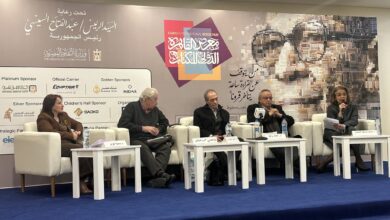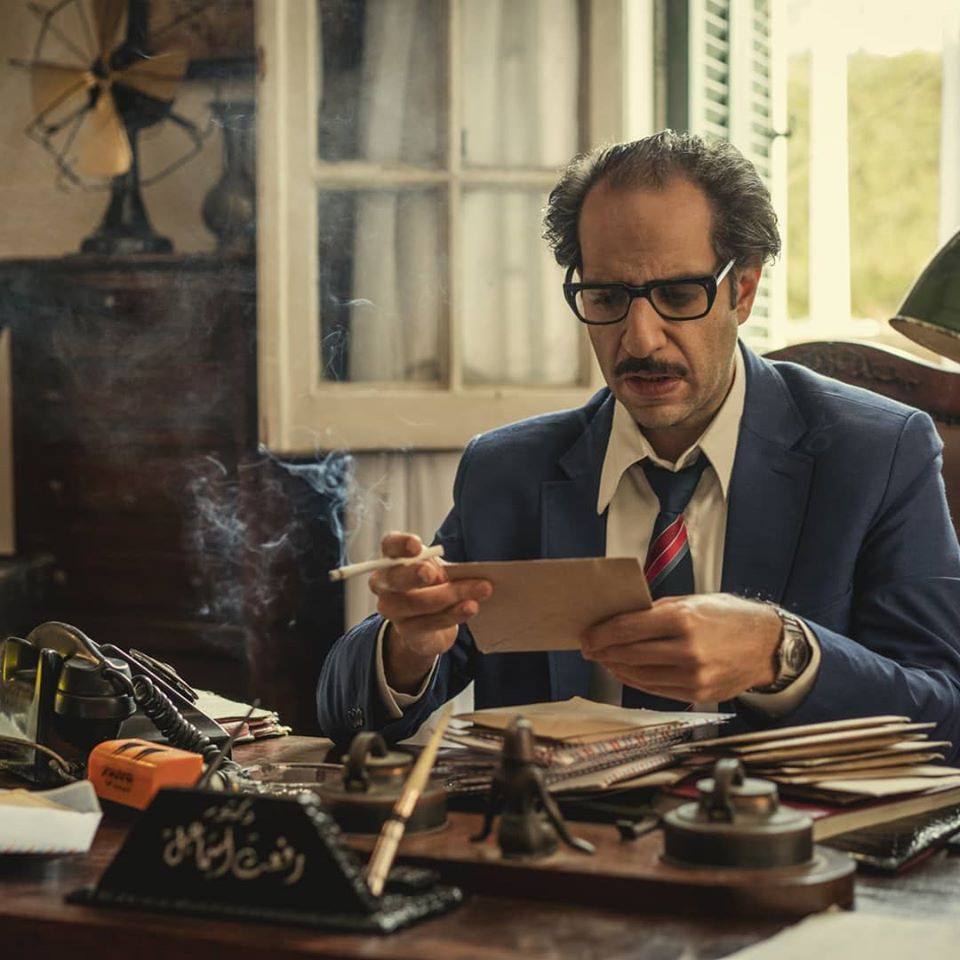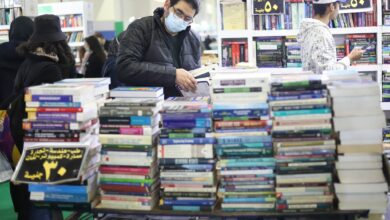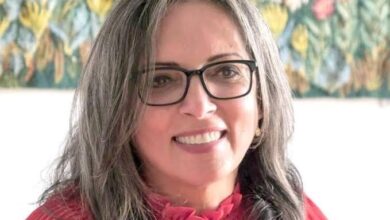At first glance, Gretchen McCullough and Mohamed Metwalli seem perfectly cast for their roles: she, the hard-working prose writer in a neatly pressed shirt, and he, the bohemian poet. But despite – or because of – their differences, they form an unusual and successful translational partnership, the latest fruit of which was McCullough's bilingual short story collection "Three Stories from Cairo" translated by Metwalli and launched last month at Zamalek's Diwan bookstore.
McCullough researches her stories. She cuts things out of newspapers, particularly Egyptian cartoons, and keeps notebooks full of them. “She is industrious,” Metwalli says, rubbing his face. “I envy that.”
Metwalli writes when inspired, when the poem becomes urgent and he feels he must get it down on the page. He doesn’t walk to the poem, he says. He waits for it to materialize.
McCullough’s Texas-accented speech is slow and measured. She listens attentively and waits a few beats before she speaks. Metwalli, on the other hand, delights in letting his words race out, playing with synonyms and sayings. At the Zamalek book signing, his remarks made audience members alternately giggle and shift uncomfortably in their seats.
McCullough is an instructor at the American University in Cairo and evinces a sense of duty about her work. At times, she seems to envy Metwalli’s free spirit. As to why he’s translated some of her stories but not others, she said, “Mohamed doesn’t do things unless he likes them.”
When interviewed after their book signing, McCullough attempted to treat every question seriously. But Metwalli laughed off several reporters. He seemed to find two young female reporters particularly amusing, and later did an imitation of one who’d asked, of McCullough’s book, “Excuse me, but is she saying bad things about our culture?”
They are not always the mischievous poet and the serious prose writer. Metwalli’s poems are in many ways more serious than McCullough’s playful stories. And Metwalli is particularly earnest when discussing which poets are (and aren’t) worth reading.
Their translational partnership started in 2008, not long after they met through poet Maged Zaher. McCullough has helped to bring a number of Metwalli’s poems into English, and he has translated several of her short stories into Arabic. Metwalli’s “The Story of Light” recently appeared in translation at The Brooklyn Rail.
It’s common enough that a translator would question the author about a tricky or ambiguous passage. Some authors and translators develop a close working relationship as they make their way through several drafts of a story or novel. But McCullough and Metwalli take this yet further: “It’s just like sitting side by side together,” she said, “and translating, painstakingly, sentence by sentence.”
With Metwalli’s poetry, he said, McCullough was his “idiomatic adviser,” telling him when a word was too flat or overused. The poems are polished to clarity, reading as though they had been written in English:
Long ago a primitive man went out to his forest / He saw the moon above / Hit it with a stone and hurt its feelings / Since then the moon leaked light / From the opening in its dim glass.
For McCullough, Metwalli was both her stories’ translator and their champion. He was the one who encouraged her to publish the collection. Although he chose the three shortest stories – complaining that the others were more like “novellas” – the process was not quick. Each paragraph was a journey.
“That’s why I was joking that it would take 150 years to translate 30 pages,” McCullough said. “We would do a page, a paragraph.” They’d say “today, we’re going to work on the translation. Today, we’re going to work on another paragraph.” And through all that, she said, they were “having lots of discussions and fights.”
When rebuilding Metwalli’s poems in English, McCullough talked through individual words and phrasings that felt wrong. She said that Metwalli’s English translations of his poetry would sometimes have “the correct word but not the poetic word.”
“Even though he’s really, really fluent in English,” McCullough said, “there’s still lots of things he doesn’t know.”
McCullough said that, in turning her stories into Arabic, syntax was the biggest challenge. “Just the structure of the language is so different,” she said. “My inclination is still to want to write a sentence in English, but in Arabic.”
The partnership has certainly affected their availability to different audiences. But it also may have changed the creative trajectory of their work. Metwalli scoffed at questions about whether McCullough has exoticized certain aspects of Egyptian life. But McCullough said that, in fact, he had questioned some of her portraits. “I had one [story] that he criticized and he thought it was Orientalist.”
McCullough’s Cairo stories have developed since she started writing them in 2005, she said. “Maybe in the beginning they were a bit more Orientalist,” she said. “Maybe having other people read them… It’s also having different kinds of readers.”
McCullough’s stories were also visually “translated” by theater artist Laurence Rudic, who did the stories’ accompanying black and white illustrations. In including illustrations, McCullough said, she was inspired by Mahmoud Salem’s “Adventures of the Five.”
“We were trying to do something that’s fun,” McCullough said. “A pleasurable, small read.”
She would like to compile the rest of her Cairo stories, although it might not be Metwalli who translates them into Arabic.
“It’s very stimulating and it’s very interesting and I think it’s a very interesting linguistic exercise,” McCullough said of their co-translations. But “it’s not speedy and it’s not practical. If we were trying to make a living out of it, forget it.”




